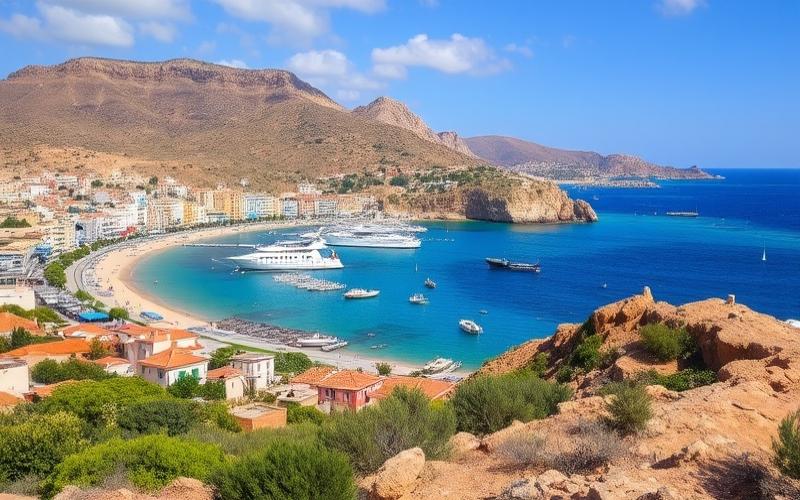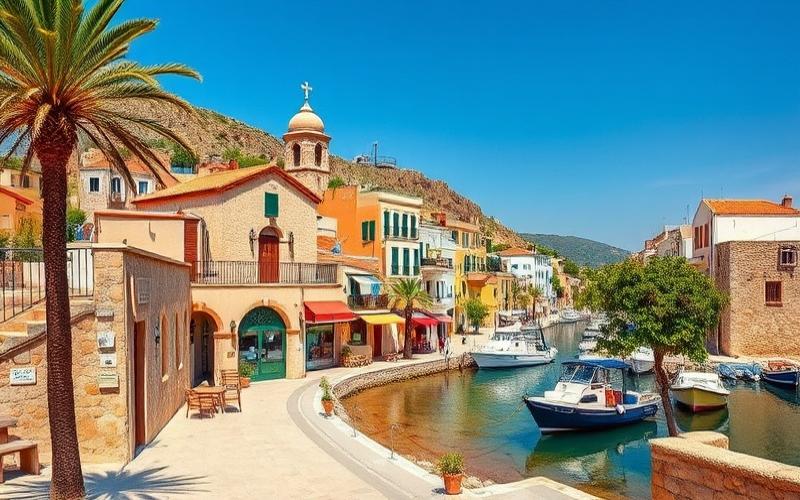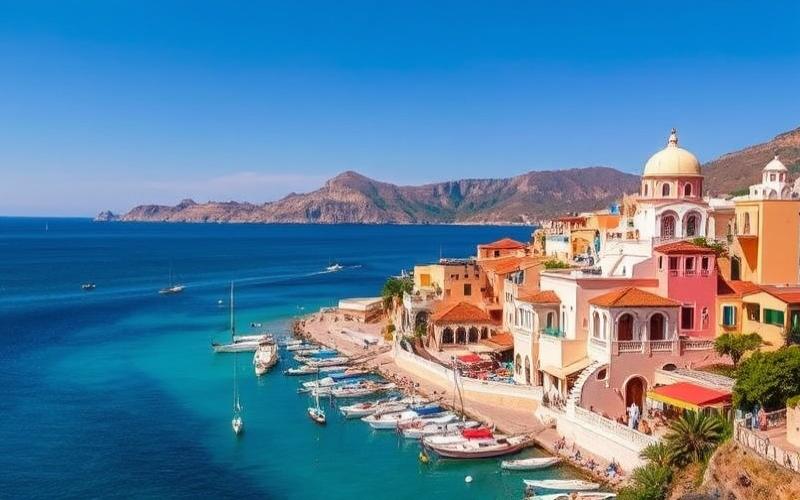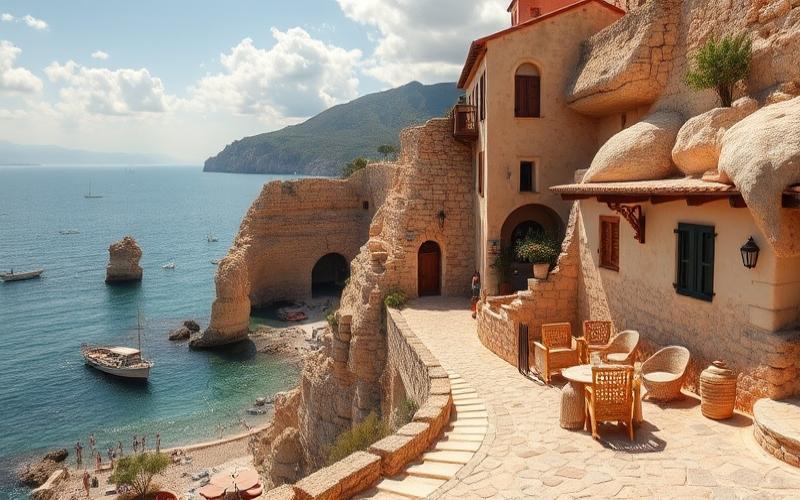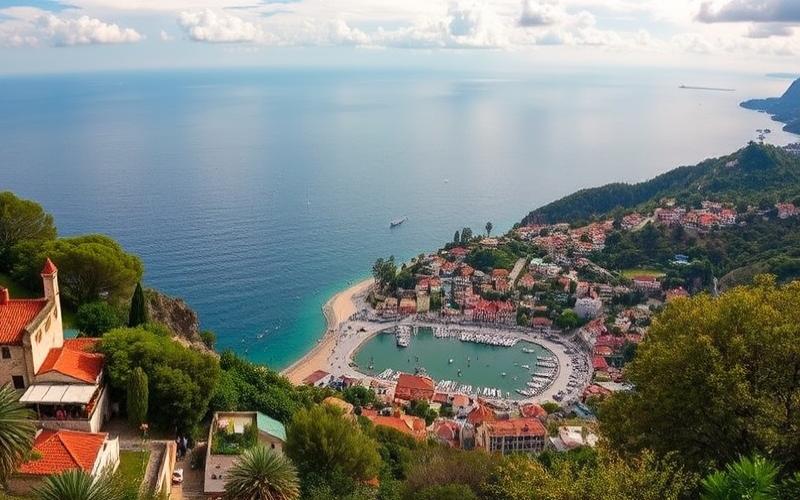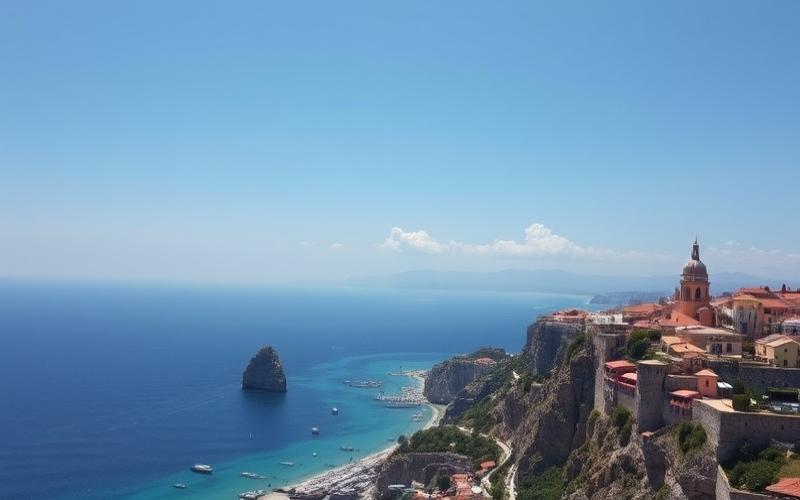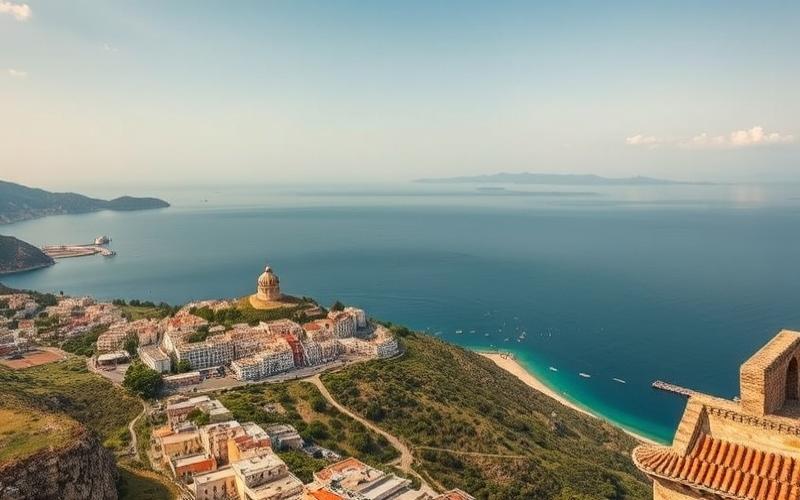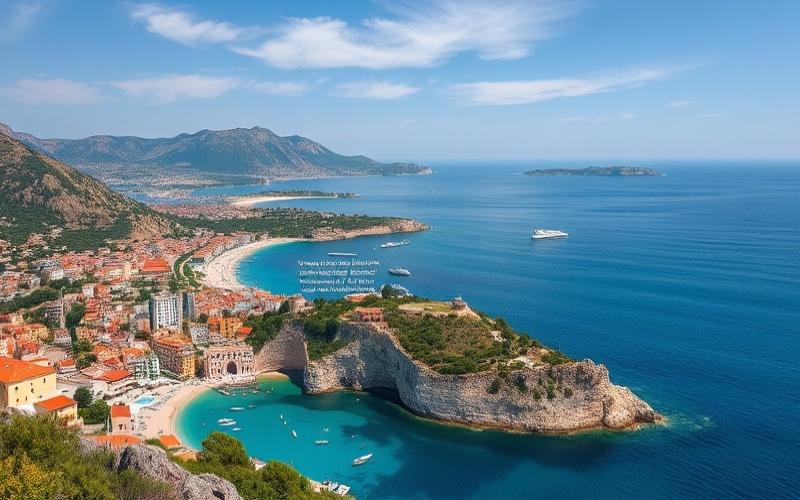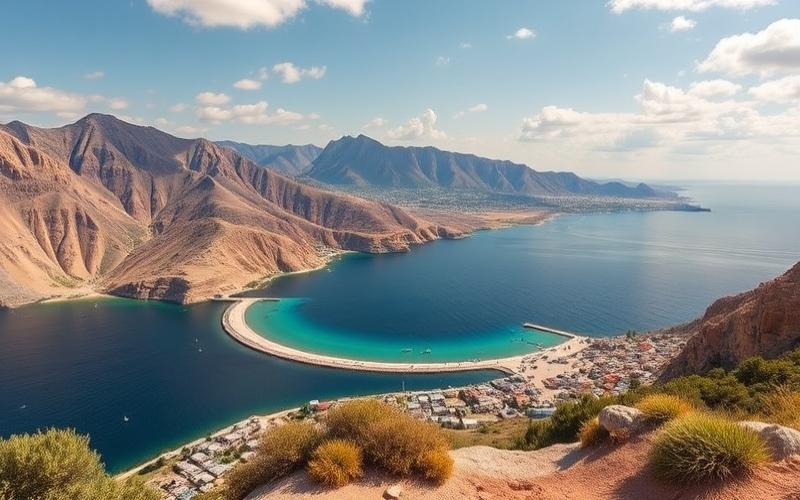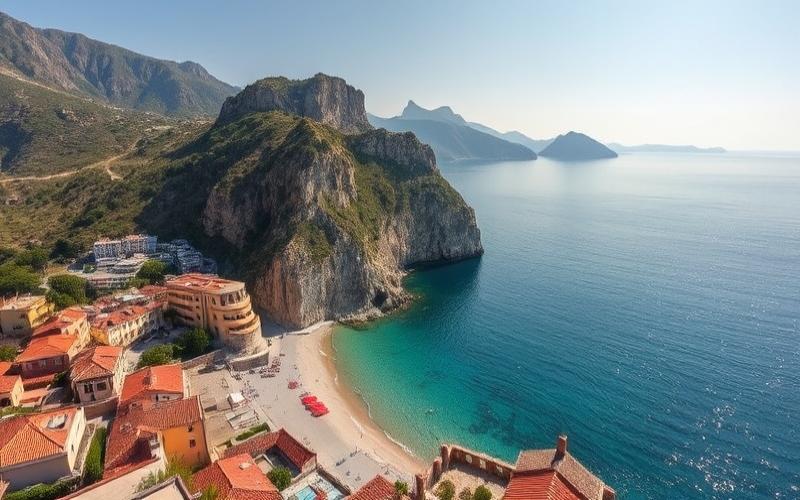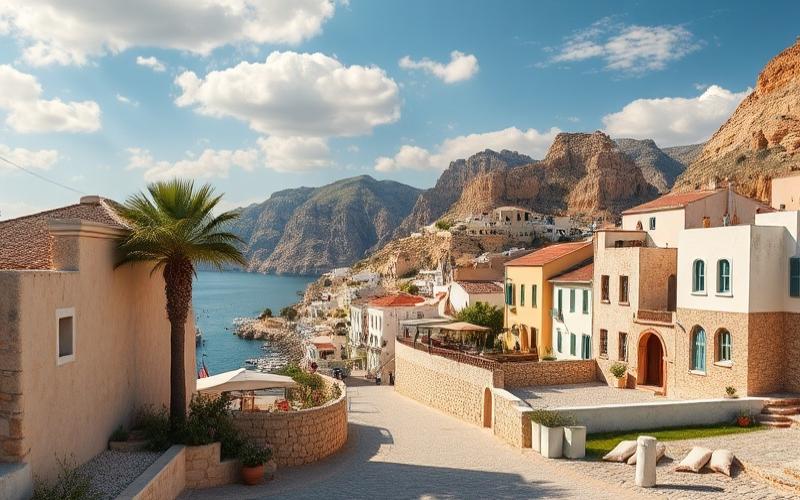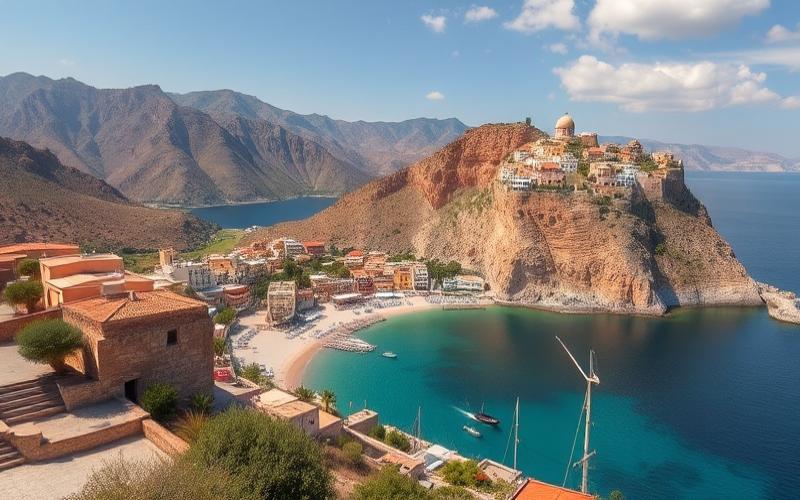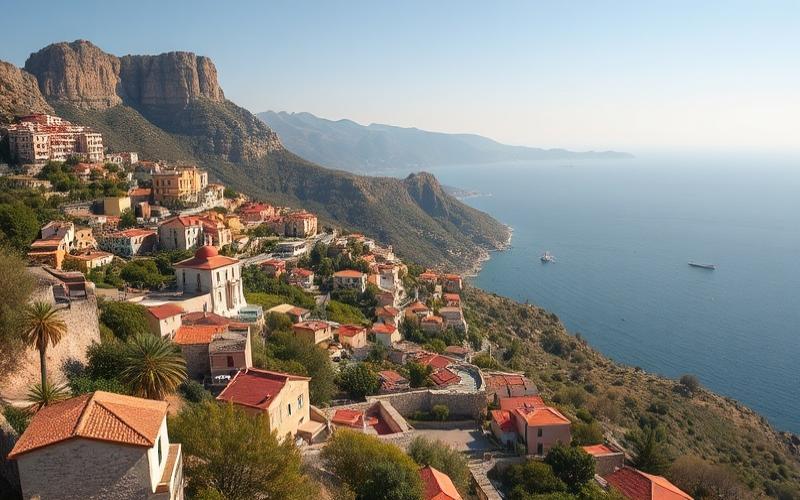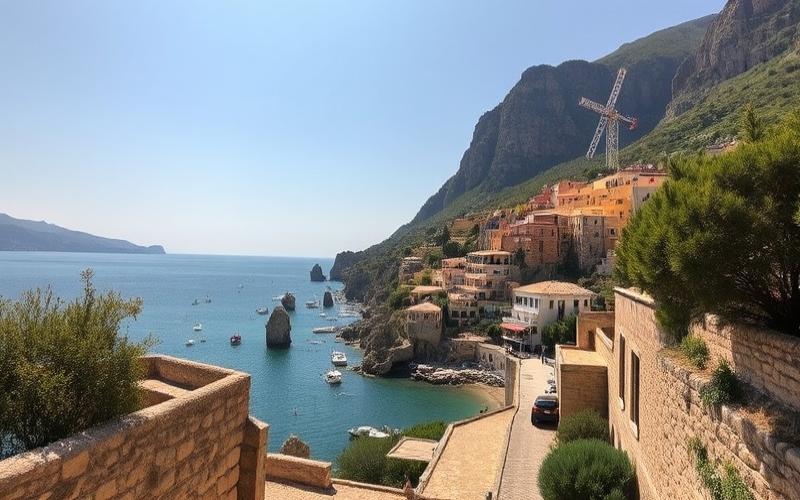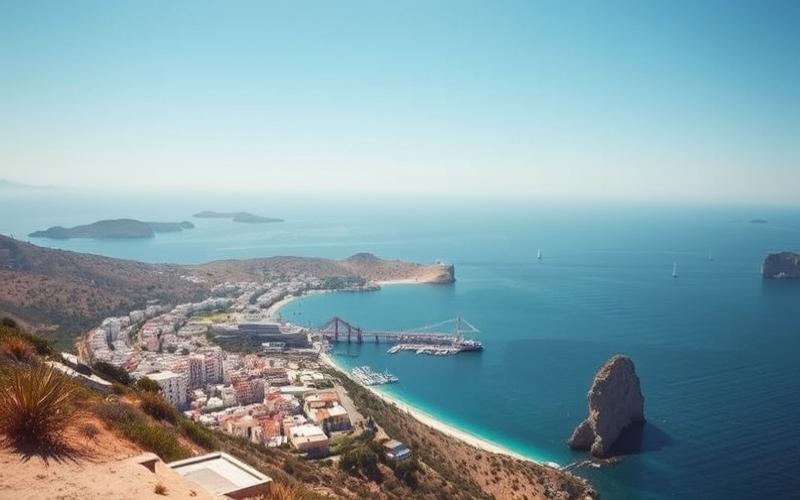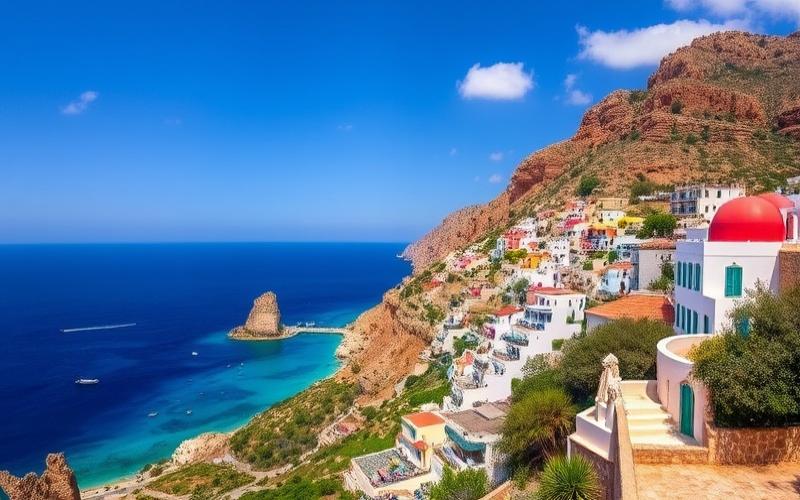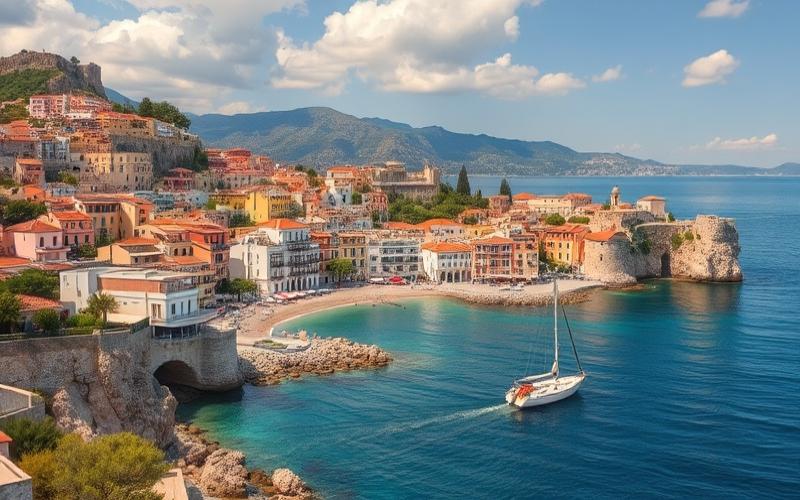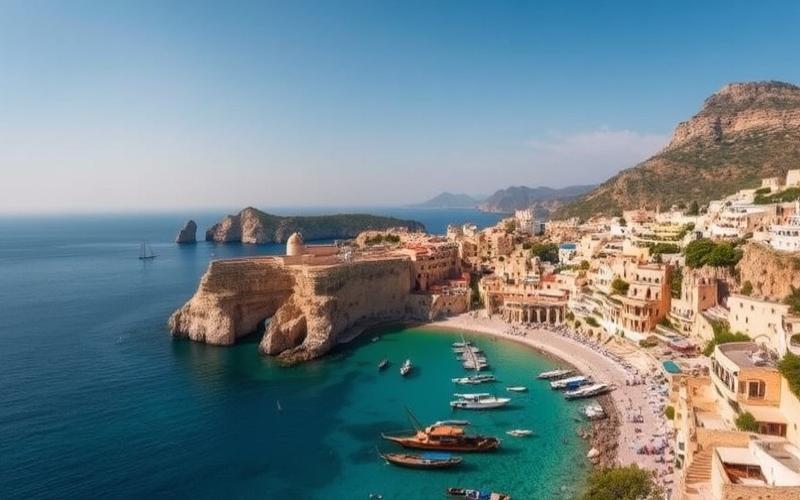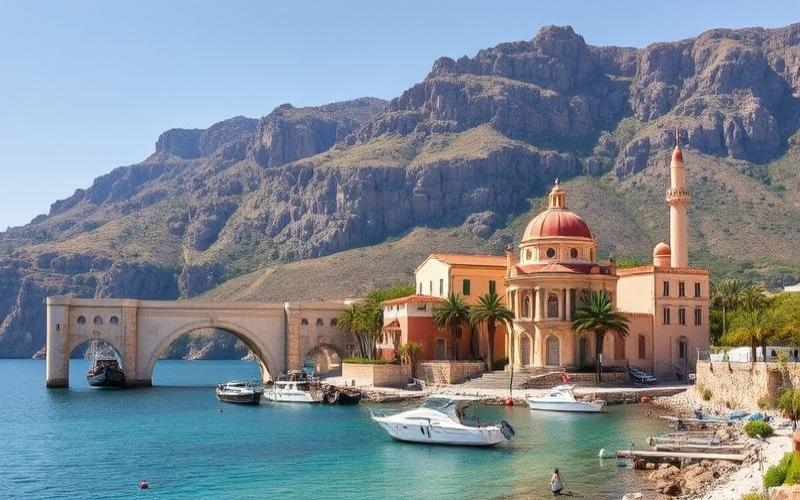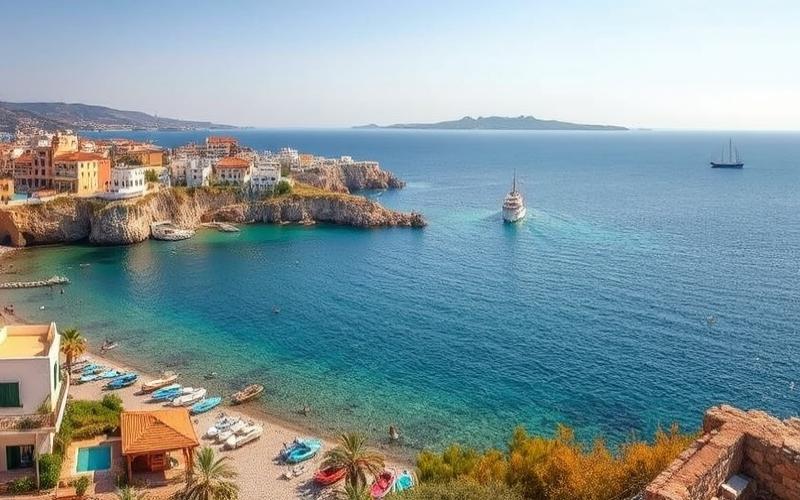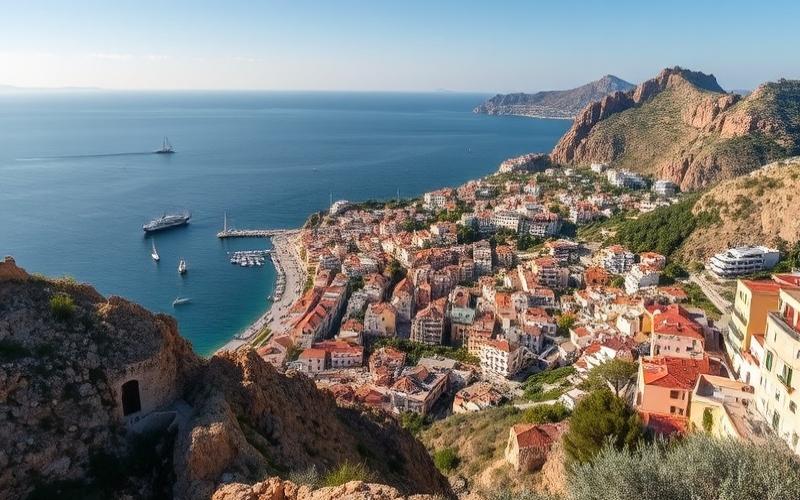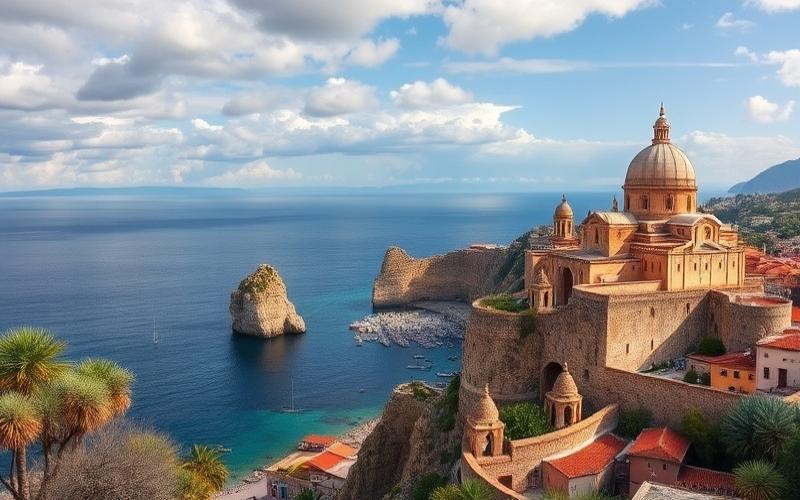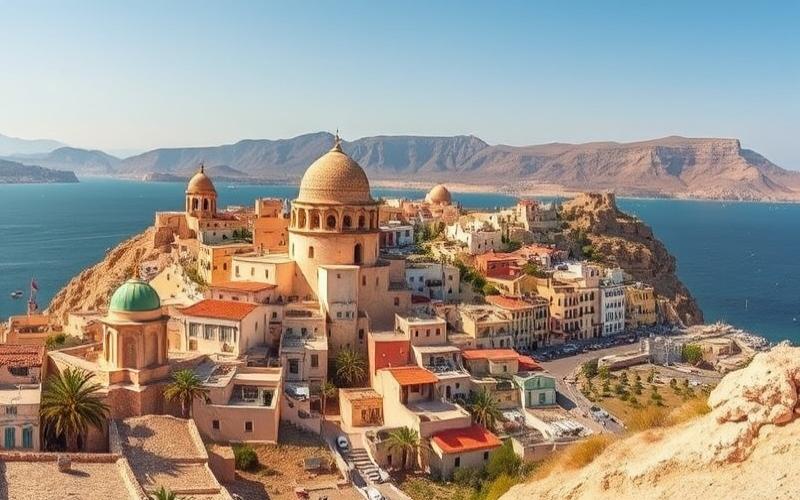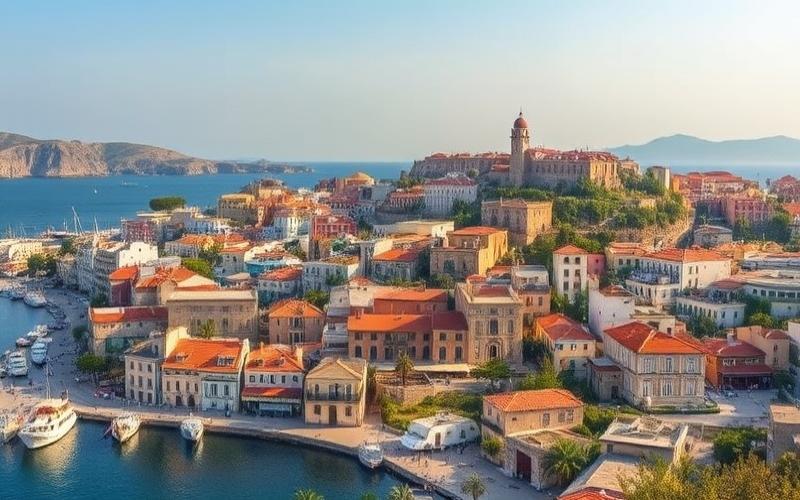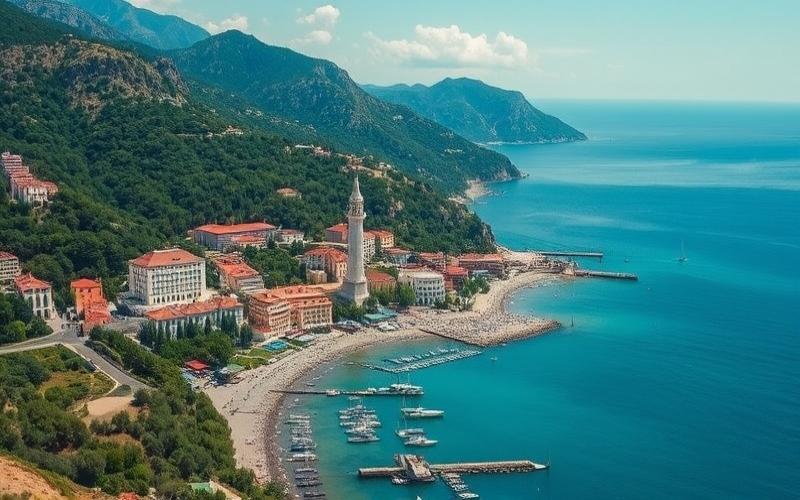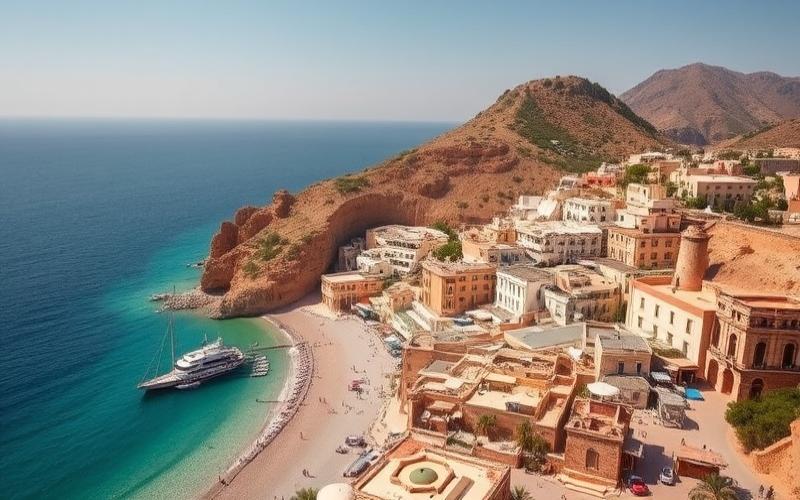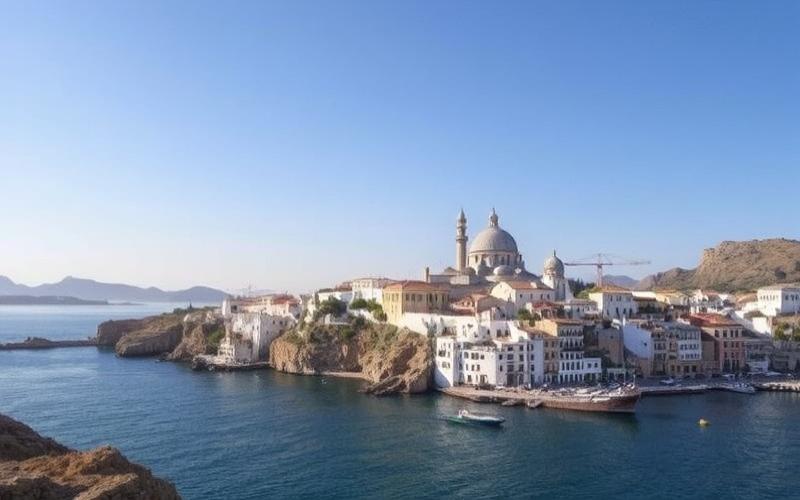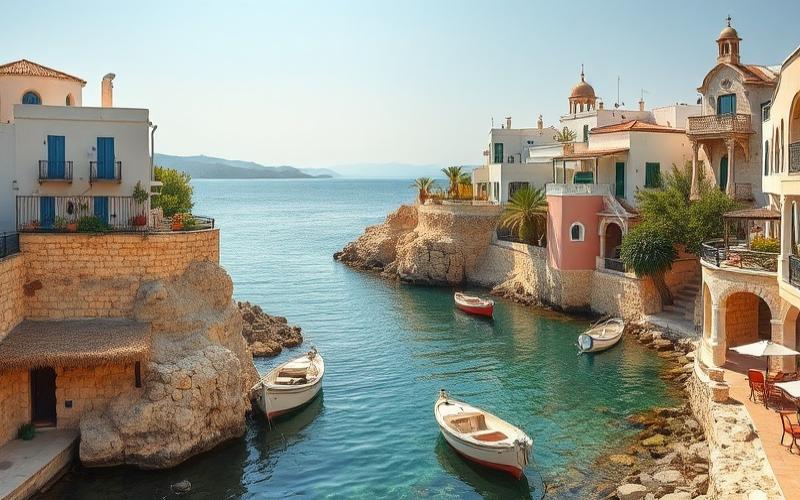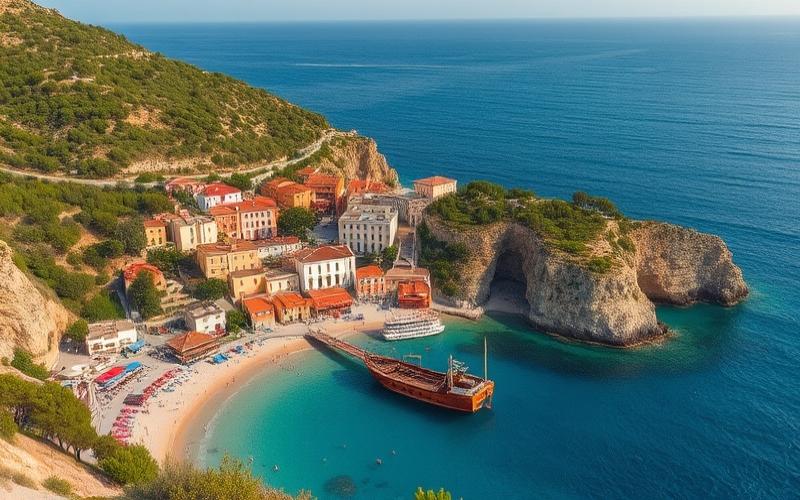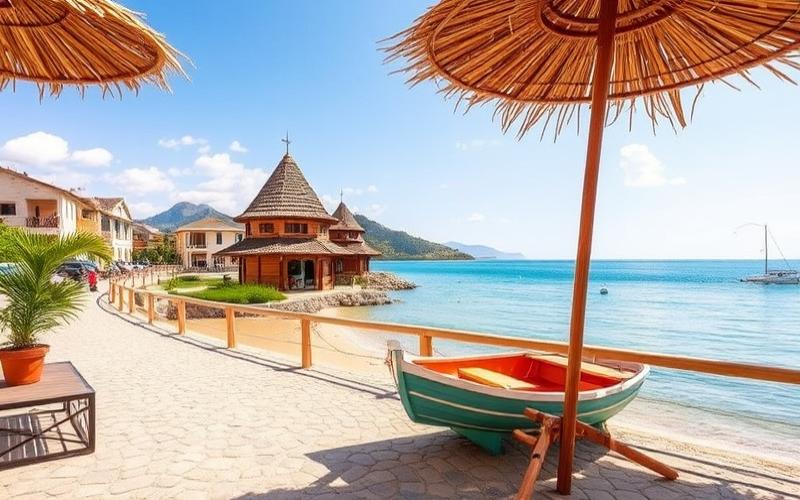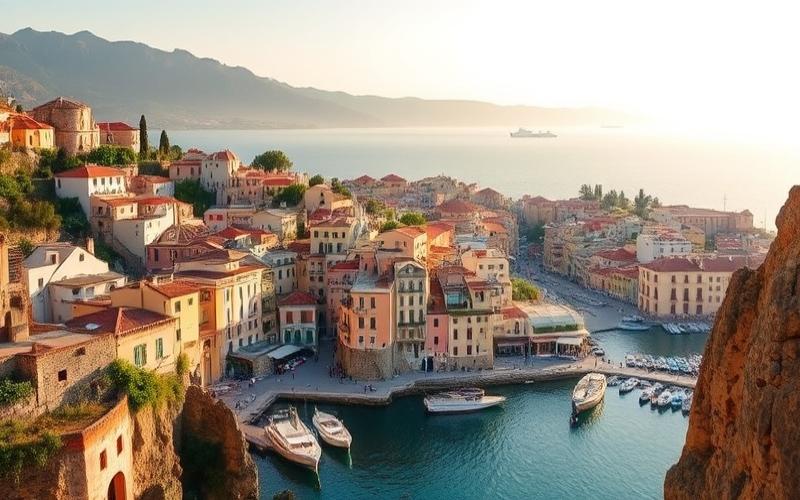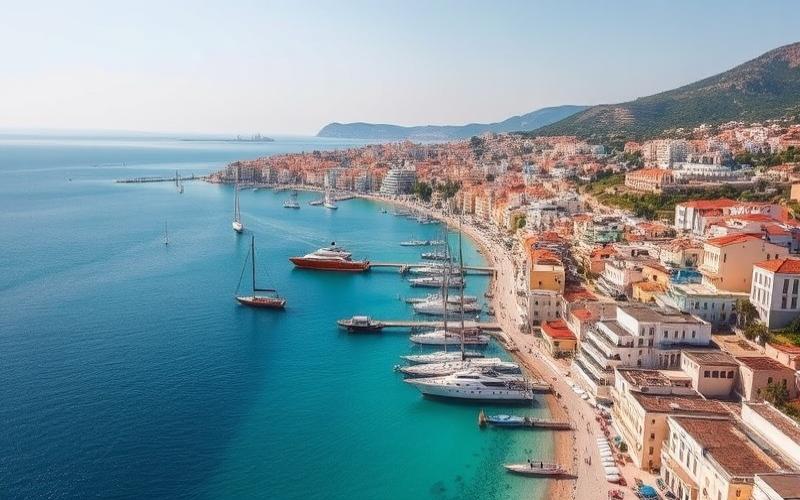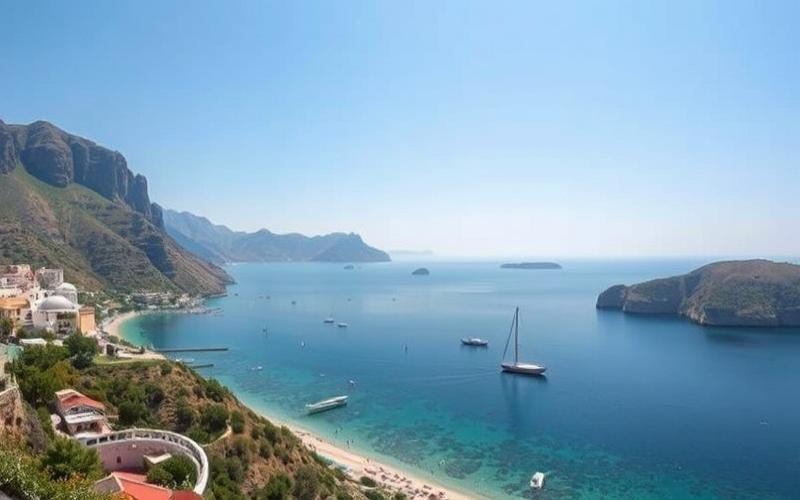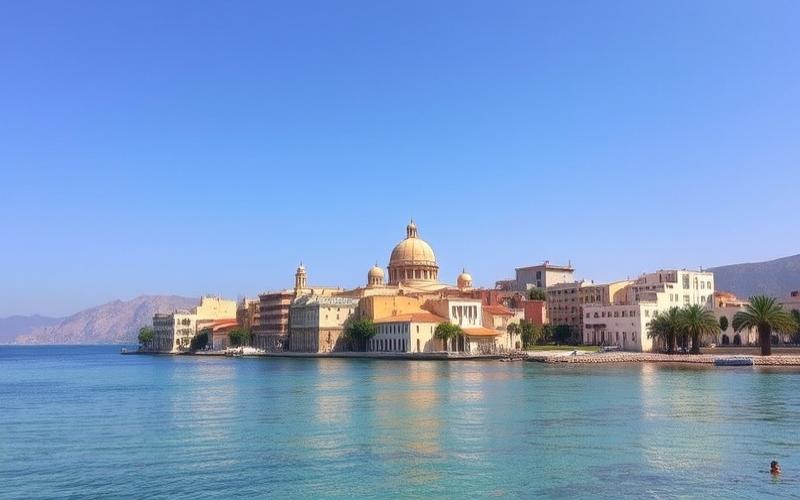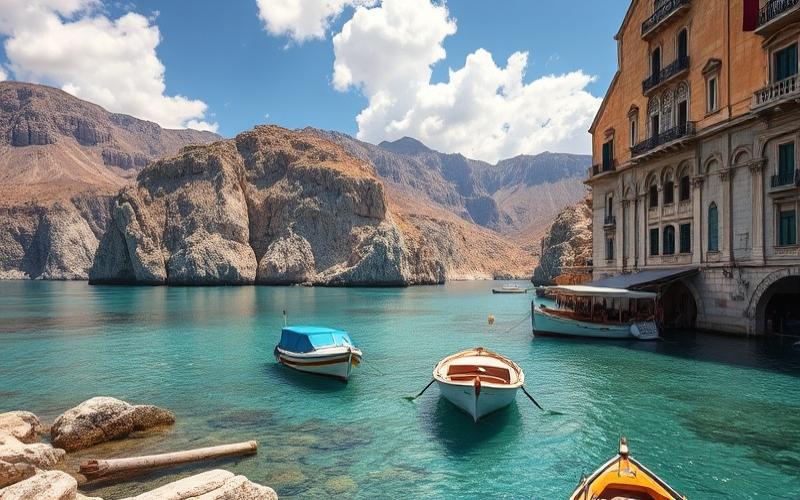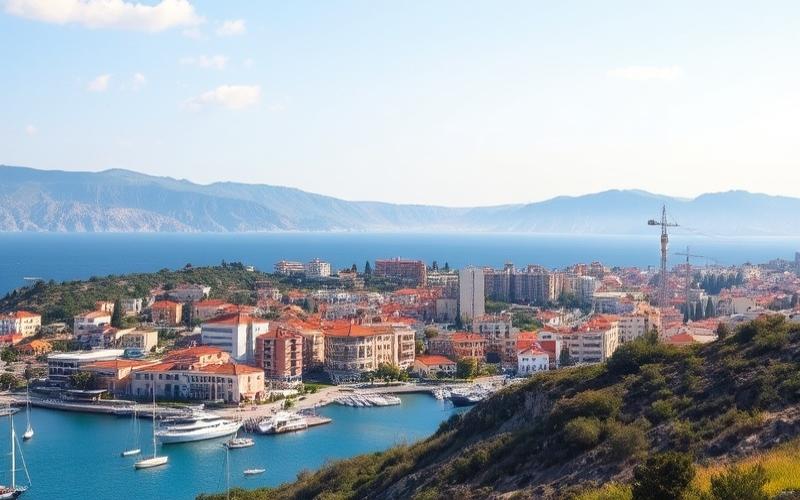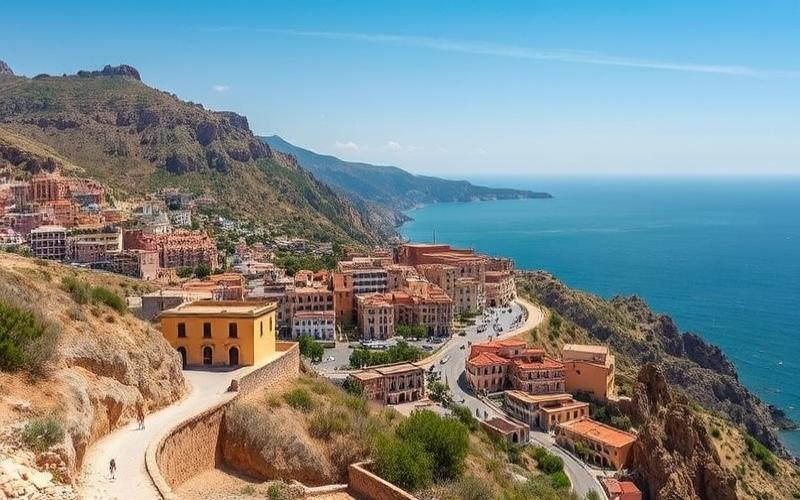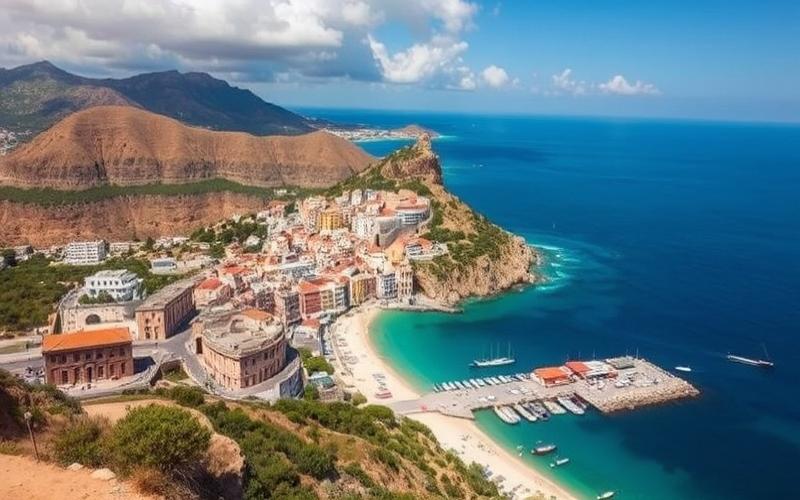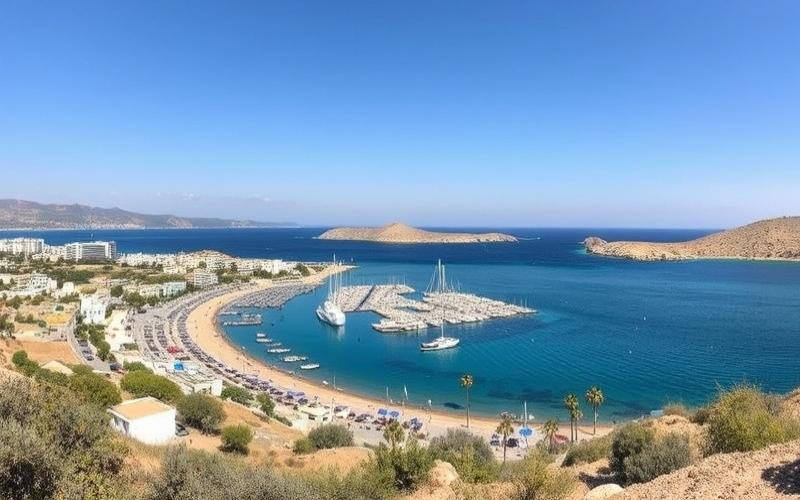
 Published on and written by Cyril Jarnias
Published on and written by Cyril Jarnias
Green Real Estate in Cyprus 2025: A Commitment to Sustainable Development
As Cyprus, a sun-drenched island, moves toward the future, green real estate is positioning itself as a key player in sustainable development by 2025. Highlighting the ambitious standards recently adopted by the country, this article explores how these guidelines aim to optimize energy efficiency and reduce the carbon footprint of new constructions.
Additionally, particular emphasis is placed on attractive subsidies that encourage both citizens and investors to choose more eco-friendly residential solutions.
Through this transition toward a greener economy, Cyprus demonstrates its vibrant commitment to implementing eco-responsible practices, offering a compelling opportunity for those wishing to actively participate in transforming the Mediterranean real estate landscape.
Good to Know:
Cyprus’ ecological standards include strict requirements for insulation, renewable energy, and water resource management.
Green Building Standards in Cyprus
Green building standards in Cyprus are undergoing significant evolution in 5 driven by European legislation and the country’s increased environmental commitments. These regulations primarily concern energy efficiency, sustainable management of materials and waste, and systematic integration of renewable energy into real estate projects.
Key Regulatory Developments for 2025
- Compliance with the European Energy Performance of Buildings Directive (EPBD), revised in April 2024.
- Ban on subsidies for standalone fossil fuel boilers starting 2025; complete phase-out planned by 2040 for fossil-based heating and cooling.
- Requirement for all new public buildings to be “zero emission” by 2028; extension to all new buildings by 2030 at the latest.
- Mandatory consideration of global warming potential throughout the building’s lifecycle, including production and disposal of materials used.
Major Environmental Requirements
| Area | Key Requirement | Recent Evolution |
|---|---|---|
| Eco-friendly Materials | Increased encouragement to use recycled/renewable materials | Inclusion of full lifecycle in calculations |
| Energy Efficiency | Expected primary reduction: -16% (2030), -20/22% (2035) | Extension to worst-performing non-residential buildings |
| Waste Management | EU Target: Reuse or recycle ≥55% municipal waste | Identified risk of missing national target |
| Renewable Energy | Mandatory integration in new designs | Accelerated decarbonization imposed by legislation |
Impacts on Cypriot Industry
- Initial increase in construction costs due to greater use of high-performance technologies, ecological certification, and rigorous site management.
- Need to acquire or strengthen technical skills to meet regulatory requirements (bioclimatic design, integrated solar systems, advanced insulation).
- Enhanced value during resale or rental through obtained ecological labels.
Certification Process
Projects must now justify their compliance through:
- Mandatory energy audits,
- Quantified declaration of total emission potential,
- Potential acquisition of European labels equivalent to BREEAM or LEED depending on target market.
Recent Examples Illustrating These Standards
“GreenView Limassol” Residential District
Exclusive use of bio-based insulation, widespread photovoltaic panels on collective roofs. Early certification as zero-emission building before official deadline.
“SmartHub Nicosia” Administrative Offices
Smart home systems optimizing electricity consumption; systematic greywater recovery; automated selective sorting during construction and operation phases.
The new requirements push the entire sector toward structural transformation that fosters technological innovation but involves higher initial investment. However, in the medium term, they should strengthen the international competitiveness of the Cypriot sector while reducing its environmental impact.
Good to Know:
In 2025, Cyprus is strengthening its green building standards to address environmental challenges and sustainability goals. Regulations now require increased use of eco-friendly materials, improved energy efficiency with mandatory certifications for buildings achieving B+ levels or higher, and strict management of construction waste including recycling 70% of materials. Real estate projects must integrate renewable energy, with at least 25% of energy consumption coming from sources like solar or wind. These standards, while potentially increasing initial project costs, enable long-term energy savings and add value to properties. The impact on the industry results in increased green certifications and more rigorous processes, but also the emergence of innovative models such as the Melco complex in Nicosia, a pioneer in applying these new standards.
Renewable Energy Subsidies in Cyprus
In 2025, Cyprus is implementing several types of subsidies to stimulate renewable energy development, with particular focus on solar, wind, and energy storage solutions.
Available Subsidy Types
- Direct investment subsidies: partial funding of installation costs for photovoltaic (PV) plants, wind turbines, and biomass.
- Specific support for energy storage: particularly for batteries coupled with solar or hybrid installations.
- Programs dedicated to SMEs and residential projects targeting energy renovation or integration of green solutions into existing buildings.
- Incentive tax measures (partial exemptions, reductions on certain taxes related to green construction).
Recent Government Programs and Allocated Amounts
| Program | Total Amount | Target Project Type | Cap per MW/MWh | Year/Deadline |
|---|---|---|---|---|
| Battery Storage Subsidy | €35 million | PV solar, wind, biomass systems with battery | Up to €300,000/MW or €100,000/MWh | Until 2027 |
| Save-Upgrade SME Plan | €24 million | Small/medium enterprises – energy renovations | Variable by project | Launch in 2025 |
The flagship program launched in early 2025 allocates up to €35 million to support the purchase and installation of solar storage systems in large renewable plants. It targets total deployment estimated at 150 MW (350 MWh). The mechanism is competitive: developers submit their applications during open calls until 2027.
Another specific plan called “Save-Upgrade” dedicates €24 million to supporting SMEs wishing to integrate more energy efficiency or install green equipment.
Typical Eligibility Criteria
- Be an entity registered in Cyprus (company/real estate developer/landowner).
- Present a project meeting national energy performance standards.
- Meet a guaranteed minimum threshold for grid injection (for projects >1 MW).
- Demonstrate project financial viability and positive environmental impact.
Calls are typically competitive: only applications showing the best environmental/cost effectiveness are selected.
Expected Impact on Cypriot Green Real Estate Portfolio
Massive subsidies directed toward solar photovoltaics (over half of national support) are strongly accelerating:
- Systematic integration of rooftop PV in all new residential/multi-unit projects;
- Widespread adoption of low-energy buildings through facilitated access to green equipment;
- Rapid development of residential/commercial storage market enabling increased self-consumption;
- Stricter mandatory criteria from building permit phase concerning:
- Minimum energy coefficients,
- Priority use of sustainable materials,
- Mandatory presence of renewable energy installations when certain m²/collective housing thresholds are crossed.
For real estate developers:
Financial incentives significantly lower their initial costs while enhancing property value for buyers sensitive to future energy bill savings. This also encourages architectural innovation focused on “green buildings.”
Recent example: Several new housing developments already benefit from public co-financing covering up to 30% of total costs related to integrated renewable energy equipment during construction.
In summary:
| Average proportion of subsidized renewable/PV energy in nine member states including Cyprus (latest known period) | >50% |
| Major expected real estate trend (by end of decade) | Nearly exclusively “green” new buildings |
Important note:
National plans also aim for all new constructions to align with the European “net zero emission” objective by decade’s end through systematic coupling of public aid/direct subsidies/incentive taxation.
Good to Know:
Approaching 2025, Cyprus is implementing various subsidies to promote renewable energy, primarily targeting solar and wind installations. The key government program, the “Green Energy Fund,” offers funding covering up to 50% of costs for residential and industrial projects integrating sustainable energy solutions. Eligibility criteria include using approved technologies and complying with local environmental standards. The goal is to increase renewable energy in the real estate sector by 30%, directly influencing construction standards by integrating energy self-sufficiency as a standard. For example, tax incentives are offered to developers incorporating solar panels or geothermal heating systems in their projects, encouraging mass adoption of green technologies and increasing property value and sustainability. These measures are expected to transform the Cypriot real estate market, stimulating green investments and leading to significant reduction in the national carbon footprint.
BREEAM Certification: A Commitment to a Greener Future
The primary objective of BREEAM certification is to promote and assess the environmental performance of buildings, encouraging their sustainable development throughout the lifecycle. It aims to reduce construction carbon impact, improve energy efficiency, and promote occupant well-being. This approach fully aligns with Cypriot initiatives for green construction, where it plays a key role in aligning the real estate sector with national climate objectives.
BREEAM Assessment Criteria
Certification relies on multidimensional assessment covering several categories:
- Management
- Health and Well-being
- Energy
- Transport
- Water
- Materials
- Waste
- Land Use and Ecology
- Pollution
Each category receives a weighted score leading to an overall rating across six levels: Pass, Good, Very Good, Excellent, and Outstanding.
| Category | Objective |
|---|---|
| Energy | Minimize consumption & emissions |
| Water | Reduce usage & optimize management |
| Materials | Promote sustainable/recycled materials |
| Management | Ensure sustainable management |
| Waste | Reduce production/hazardousness |
How BREEAM Promotes Sustainable Development
BREEAM actively encourages:
- Reduction of carbon emissions at every stage (construction, operation, end-of-life)
- Increased use of on-site renewable energy
- Optimization of energy systems to limit waste
- Circularity through material reuse/repurposing
These actions directly contribute to reducing the overall carbon footprint of the Cypriot real estate sector.
Notable Examples in Cyprus
Several BREEAM-certified projects illustrate this success locally:
The headquarters of a major Cypriot bank achieved “Excellent” level through a bioclimatic facade reducing air conditioning needs and a photovoltaic system covering 30% of its annual consumption.
A coastal residential complex achieved “Very Good” certification, notably through extensive use of local recycled materials and intelligent rainwater management drastically limiting its impact on natural resources.
These examples demonstrate that adopting BREEAM standards not only significantly improves energy performance but also inspires an entire sector toward greater ecological innovation.
Government Support & Subsidies (2025)
The Cypriot government offers various incentive mechanisms in 2025 to support this momentum:
- Direct subsidies covering up to 25% of costs related to green procedures/certifications (including BREEAM)
- Specific tax relief for developers engaged in certified approaches
- Priority access to public calls for social housing or public infrastructure if project is labeled
This institutional support strongly stimulates mass adoption of BREEAM standards among local real estate actors who see it as both a competitive advantage and concrete financial leverage for investing in sustainable building.
Good to Know:
BREEAM certification, a global reference for sustainable construction, aims to promote buildings with low environmental impact and high energy efficiency, which is crucial for ecological initiatives in Cyprus. BREEAM assessment criteria include waste management, energy efficiency, and use of sustainable materials, thereby incentivizing projects to reduce their carbon footprint. In Cyprus, projects like the “Green Haven” residential complex illustrate this success, having achieved significant emission reductions through these standards. In 2025, the Cypriot government offers attractive subsidies for BREEAM projects, encouraging widespread adoption of this certification and supporting the transition toward greener real estate, contributing to a more sustainable future for the island.
Disclaimer: The information provided on this website is for informational purposes only and does not constitute financial, legal, or professional advice. We encourage you to consult qualified experts before making any investment, real estate, or expatriation decisions. Although we strive to maintain up-to-date and accurate information, we do not guarantee the completeness, accuracy, or timeliness of the proposed content. As investment and expatriation involve risks, we disclaim any liability for potential losses or damages arising from the use of this site. Your use of this site confirms your acceptance of these terms and your understanding of the associated risks.

